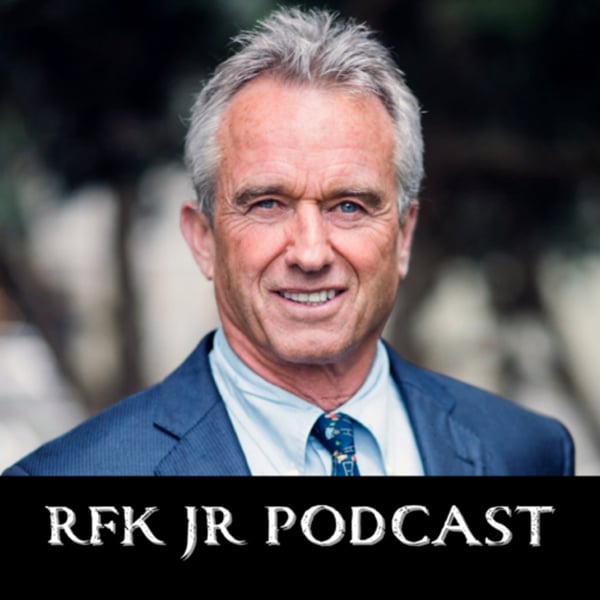Pesticides and Death Of Bees with Dr David Carpenter
RFK Jr Podcast
Robert Kennedy Jr
4.8 • 2.1K Ratings
🗓️ 31 May 2022
⏱️ 9 minutes
🧾️ Download transcript
Summary
100th episode! - Dr. David Carpenter discusses pesticides and the death of bees, winged insects, and bee colony collapse in this episode.
--- Send in a voice message: https://podcasters.spotify.com/pod/show/rfkjr/messageTranscript
Click on a timestamp to play from that location
| 0:00.0 | Hey, everybody. I'm really happy to have one of my old, old friends and a |
| 0:05.6 | inveterate expert witness in a number of cases that I've been hanging out with for almost 40 years |
| 0:14.0 | on the Hudson River working on the PCB cases. David Carbiter is well known to both plaintiffs |
| 0:20.5 | and defense attorneys all across the country as one of the leading and most respected experts when |
| 0:27.6 | it comes to looking at the impacts of toxic chemicals on human health. But let me just ask, |
| 0:36.0 | yes, that's something that's really a preoccupation of mine, which is the neonicotic toy to |
| 0:42.8 | pesticides that have essentially replaced DDT and some of the old organophosphate pesticides |
| 0:50.9 | and that we're using this country and discredited. But in many ways, they seem almost as bad |
| 0:56.6 | and we're watching the collapse of bee colonies. Something like 80% of wind insects have |
| 1:04.0 | disappeared over the past decade. It's a global apocalypse of the insects and you know, we need the |
| 1:11.2 | insects as much as people might think they're just irritating. We need them. We need them for our |
| 1:16.7 | survival. So tell us about about this class of pesticides. What do you mean to human health and |
| 1:23.1 | the ecology? The neonicotinonides are a class of pesticides that everybody thought was just |
| 1:32.4 | God's gift of mankind. These are a class of pesticides where you don't spray them. You impregnate |
| 1:39.8 | the seeds of your food crop with these pesticides. They get incorporated into the leaves of the plant |
| 1:49.2 | and any insect that eats the leaves or the stems of the plant is killed. So, well, you know, Bobby, |
| 1:57.3 | I was in the car all day driving back, but literally for about eight hours. And you and I both |
| 2:04.0 | remember the days when you would drive for several hours and you wouldn't shield would be covered |
| 2:08.5 | with dead bugs. We drove for eight hours and there are a few bugs, but not many. And that just |
| 2:14.4 | indicates how much our use of pesticides have reduced the numbers of insects, the flying |
| 2:22.5 | insects that used to get on our car. And the mechanism of these chemicals is that they interfere, |
| 2:30.0 | they activate acetylcholine receptors. Now, that sounds dangerous for us because acetylcholine |
... |
Please login to see the full transcript.
Disclaimer: The podcast and artwork embedded on this page are from Robert Kennedy Jr, and are the property of its owner and not affiliated with or endorsed by Tapesearch.
Generated transcripts are the property of Robert Kennedy Jr and are distributed freely under the Fair Use doctrine. Transcripts generated by Tapesearch are not guaranteed to be accurate.
Copyright © Tapesearch 2025.

